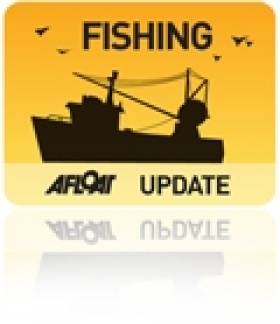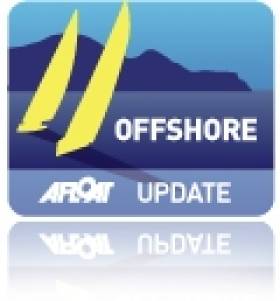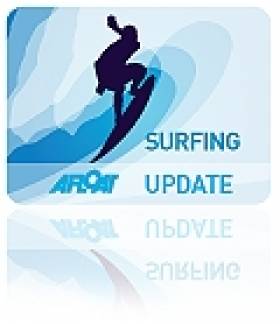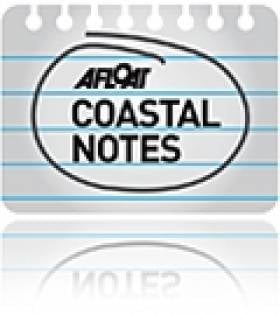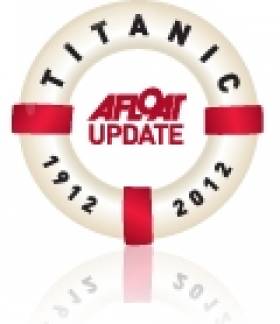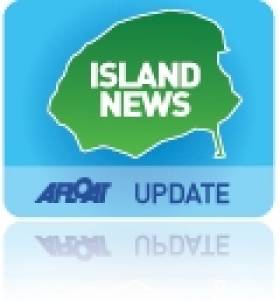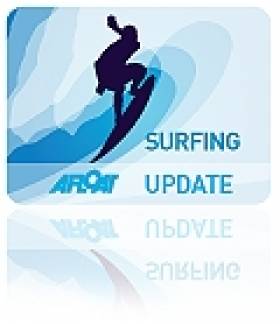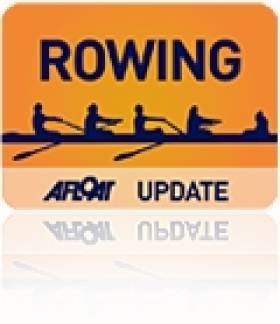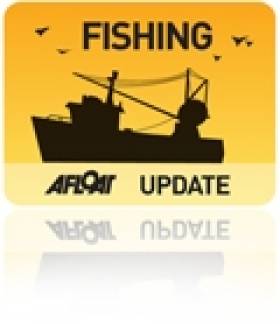Displaying items by tag: Atlantic
French Guiana Well is Dry Says Tullow Oil
#Oil - Tullow Oil's shares dropped more than 6% in London trading early last week with the news that its prospect in the Atlantic off French Guiana is dry, according to The Irish Times.
The Irish-founded oil exploration firm says it encountered a number of oil shows in reservoir quality sands at its Zaedyus-2 well in the waters north of Brazil, but it "did not encounter commercial hydrocarbons".
The result was described as "very disappointing" by Investec Securities analyst Stuart Joyner - though better signs have been seen at the nearby Zaedyus-1 well, drilled by Tullow with partners Royal Dutch Shell and Total at a cost of $250 million.
And as previously reported on Afloat.ie, the UK-based company's prospects off the Ivory Coast and Ghana have proven encouraging for future exploration.
BIM to Hold Public Tender for Galway Bay Fish Farm
#FISHFARM - Bord Iascaigh Mhara (BIM) is set to hold a public tender process for the development of the proposed deep sea fish farm in Galway Bay, according to The Irish Times.
Financiers around the world have expressed interest in the 500-hectare organic salmon farm to be located off Inis Oirr in the Aran Islands, though BIM said it was not at liberty to disclose who they are.
As previously reported on Afloat.ie, the proposed fish farm would be the largest of its kind in Europe, set to double the State's production of organic salmon.
BIM says it is already receiving inquiries for jobs from emigrants wishing to return home.
However the scheme has faced opposition from Inland Fisheries Ireland (IFI) and local anglers, who cite the potential threat to wild salmon numbers in the area.
IFI recently issued a statement regarding its submission on the project's Environmental Impact Statement, raising concerns about the scale of the development and the impact of sea lice - infestations of which are often concentrated by aquaculture.
The public consultation that began in mid-October is scheduled to conclude next Wednesday 12 December.
'St Brendan Voyage' Fisherman Finds Fame on Iceland
#VOYAGE - The Irish Independent reports on the rapturous welcome received by retired Irish fisherman Finbarr Murphy in Iceland as he retraces the route of St Brendan the Navigator.
The West Cork sailor has already travelled on his restored yacht, the 19-metre Bella Donna, via the Orkneys, Norway and the Faroe Islands - crossing the freezing waters of the far north Atlantic to reach Iceland last month.
Since his arrival he's been treated as a celebrity, with regular appearances in the press and on TV and radio, and so has understandably decided to spend the rest of the winter in Iceland before the final leg of his voyage to Greenland early in the new year.
Murphy isn't the first to retrace the voyage of the legendary St Brendan, as last year a crew of sailors, artists, musicians and historians attempted the same on board Paddy Barry's 45ft yacht Ar Seachrán.
As previously reported on Afloat.ie, that trip hit a snag along the way in May last year when the boat was refused permission to land on Skellig Michael off the Kerry coast.
Surfers Swarm on Sligo for Year's Biggest Waves
#SURFING - The Irish Times reports that surfers from around the world are flocking to Sligo in expectation of what might be Ireland's biggest waves of the year.
Breakers of up to 30 feet off Donegal Bay could be the result if growing swells in the Atlantic combine with southerly winds expected from this weekend.
“We have had 50ft waves in the past but 30ft waves would certainly be great and you would have a lot of surfers coming into Ireland to follow them," said top Irish surf pro Richie Fitzgerald.
Elsewhere, President Michael D Higgins made a recent visit to the Somo Surf Centre in Cantabria, northern Spain while attending Spanish courses ahead of his State visit to South America last month, as Oceanlook reports.
“I had already heard of the charms of Loredo and Somo," the President commented. "There are many Irishmen flying to Cantabria in search of sun and also waves to get the chance to surf.”
New Targets for Oil Exploration Off Southwest Coast
#COASTAL NOTES - Oil exploration company Petrel Resources has identified a number of new targets off the southwest coast of Ireland as it seeks bigger partners for its venture.
The Irish Times reports that the Dublin-based firm was awarded licensing options over 1,400 sq km of the Porcupine Basin or Porcupine Blight in the Atlantic Ocean, west of Dursey Island in Co Kerry.
It has since completed two phases of work in the area, and says technical studies of its blocks in the northern and eastern parts of the basin, where is is testing for the presence of reservoir sands, were "encouraging".
The announcement comes following the success of Providence Resources' prospect in the Celtic Sea off the south coast.
As previously reported on Afloat.ie, the Barryroe field may deliver in excess of 2 billion barrels of oil, a flow expected to be worth billions of euro to the Irish economy in future years.
The Irish Times has more on the story HERE.
First Irishman to Dive Titanic Site Shares His Story
#TITANIC - To mark the 100th anniversary of the sinking of the Titanic, JOE.ie sat down with the first Irishman to dive the historic wreckage.
In 2000, Rory Golden descended two-and-a-half miles beneath the surface of the Atlantic to witness the Titanic's watery gravesite.
“When I first cast my eyes on the wreck," he says, "for me it was just an incredibly exciting and equally humbling and incredibly poignant moment and you have all these emotions all at once because you are looking at something very few people in the world have seen.”
Amazingly, the self-avowed Titanic expert wasn't originally a part of the dive team for the expedition.
"My role at the time was to be the dive safety supervisor, but that whole role changed over the course of the expedition," he says. “There was no guarantee of me going down there because I was very low in the pecking order."
But a memorial plaque he brought with him from Cobh ended up being Golden's ticket to the TItanic, joining the crew aboard an 18-tonne Russian submarine.
And he came back with more than memories, too, as a glint in the corner of his eye turned out to be the remains of the ship's wheel.
"I was the first person to touch the wheel of the ship since it went down in 1912 and probably the last person to hold it before it went down was Captain Smith.”
JOE.ie has much more on the story HERE.
Aran Islands are 'the Stepping Stones to the Atlantic'
#ISLAND NEWS - Writing in the Boston Globe recently, Cork native Thomas Breathnach extols the virtues of the Aran Islands as "a bastion of native culture".
"The country’s roughest seas and 1,000 miles of ancient stone walls have successfully preserved Celtic tradition within their spellbinding shores," he writes of those western isles referred to as "the stepping stones to the Atlantic".
Traversing the archipelago by foot, bicycle and plane, Breathnach sees the sights and greets the characters that make the Aran Islands such an attraction for tourists the world over.
The Boston Globe has much more on the story HERE.
Video: West Coast is Winter Hotspot for Surf Pros
#SURFING - Conor Conlon of CMP has produced this wonderful video of top professional surfers taking on the Atlantic swells of the west coast this winter.
Setting up his gear on the shore during a window of clean swell, Conlon captured the likes of Aaron Dees, Conor Maguire, Easkey Britton and newly signed Ripcurl rider Noah Cohen catching the waves (more photos and video HERE).
Neptune Rower Aodhan Kelly Hopes to Rule The Atlantic
Kelly is now based in Reading, but he cut his rowing teeth with Neptune Rowing Club in Dublin, and won eight national rowing titles. He was also selected on Ireland teams. Neptune are staging a race-night fundraiser for him in the club on November 12th.
Wild Salmon Showing Signs of Adapting to Climate Change
New evidence is indicating that wild salmon are adapting to climate change by feeding in colder waters, The Irish Times reports.
According to salmon expert Dr Ken Whelan, wild salmon are now diving as far as 800m below the surface - normally the preserve of the sperm whale - to feed for periods of up to 24 hours during winter months.
They are also travelling closer to the polar ice fields, in response to the warming of the Atlantic Ocean.
The change in behaviour was noted at a salmon summit in France attended by more than 100 fishery managers and scientists from across Europe, which was convened to discuss the threat of climate change to wild salmon stocks at sea.
Plankton levels are particularly affected by the changing wind and ocean currents, said Dr Whelan of findings from the EU-funded Salsea programme, which he led.
“Surviving the first winter at sea seems to be the key challenge for these stocks, and the salmon in the northern states like Norway and Russia, seems to be less affected,” he said.
But the recent return of wild salmon to the Tolka in Dublin, as well as healthy numbers along other inland waterways, highlighted that the news was not all doom and gloom.
The Irish Times has more on the story HERE.




























